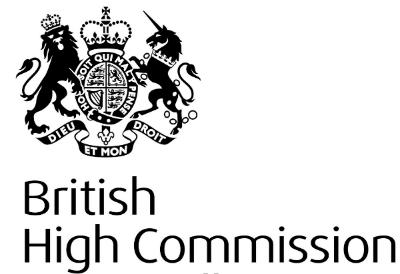
The Britain High Commissioner to Nigeria, Mr. Paul Arkwright has asked Nigeria to look inward and stop blaming its colonial masters for the absence of industrial development
He also said with Brexit, Britain’s relationship with Nigeria would change, noting that Britain will no longer be a parent to Nigeria but a partner.
Arkwright, who stated this in Lokoja yesterday while delivering a lecture at the Federal University, Lokoja, on the theme: BREXIT: Lessons, Challenges, and Opportunities for Nigeria said the UK was not afraid of post-Brexit challenges.
His words: “You have the Federal Government, state, and local government. You have human capital resources, you have the money. It is not the British that determine how you appropriate and spend these resources.
“In Nigeria, for every situation, the country will come up with two committees, different commissions and commence many legs of addressing the situation. But nothing practical will be taken to addressed such situation.
“The UK is ready to partner with the country to support its education, trade and security partnership. But Nigeria will still have to make ways for its technology drive.”
On anti-corruption, he said: “It is not only by arresting big names and sending them to jail. It is about dealing with the corrosive nature of corruption that occurs in everyday Nigeria.
“This must be done through the building of institutions that will outlive even the President and become a yardstick in measuring transparency and accountability and future dealings.”
Arkwright who said the UK was already working towards releasing stolen funds lodged in the country by Nigerians, said Nigeria had to wait until legal processes are completed.
His words: “Our bilateral trade relationship is still worth €£3.8Bn per annum. Shell, a British – Dutch company invested billions of pounds into Nigeria and has around sixty onshore water oilfields and seven hundred wells. Shell still owns approximately one-third of oil produced in Nigeria. Nigeria remains the largest oil producing country in Africa, inspite of the depressed price of oil at this time. The historical and cultural links between Nigeria and the UK, the common language of English that the vast majority of Nigerians speak, the strong educational business link doesn’t change.
“The UK has been among the leaders of the international response to humanitarian crisis in the North-east of Nigeria. We scaled up funding from £1M in 2014 to £74m in 2016. We delivered food assistance to 1million people and treats 34,000 children at risk of death from under- nourishment. We provided essential household items to more than 225,000 people who fled from their homes and provided more than 135,000 people access to clean water and sanitation
“I think what happens here to Nigeria and the choices made by the Nigerian government will be more important for the Nigerian economy than whatever Brexit may mean to Nigeria. I am optimistic for the UK, I am optimistic for Nigeria. And I see the high calibre of Nigerian business elite. I know many Nigerian youths are enterprising. It is not oil or gas that is Nigeria’s most important resources but its people. The human capital that Nigeria has, Nigerians themselves and their drive, determination, and ability to get things done often when facing challenges are what make me optimistic about Nigeria’s future.”
END

Be the first to comment